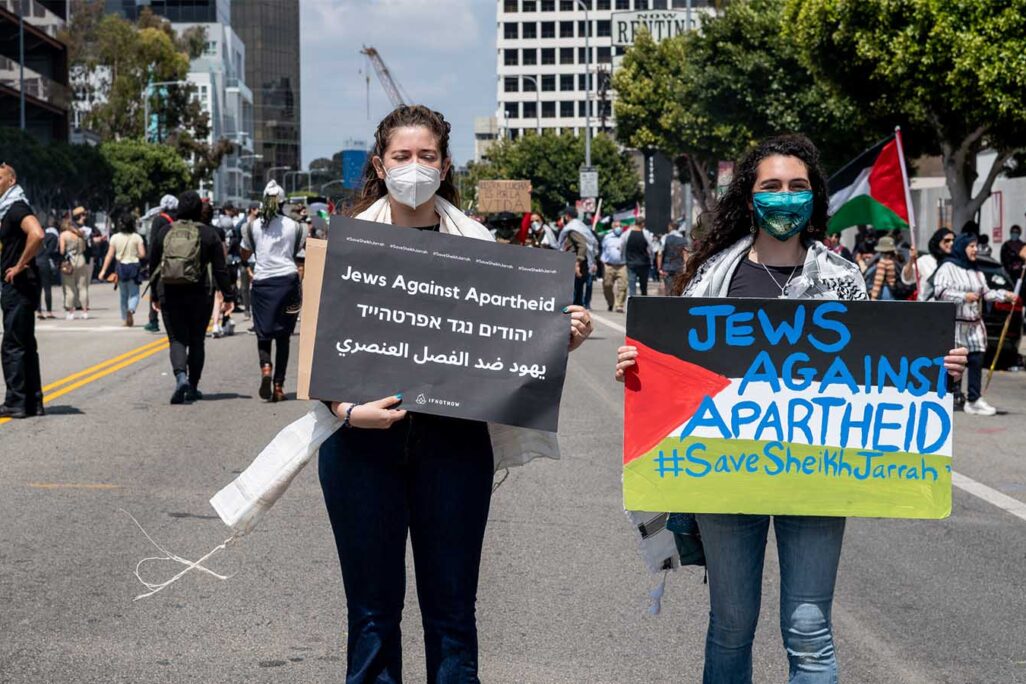
Anyone who works among Jewish communities in the United States today can attest to how absent the word “Zionism” is from the discourse. American Zionism, as a worldview, was shaped by the likes of Louis Brandeis, the first Jewish Supreme Court justice. It is designed to connect Jewish, Zionist, and American identities. It is a worldview that has almost disappeared.
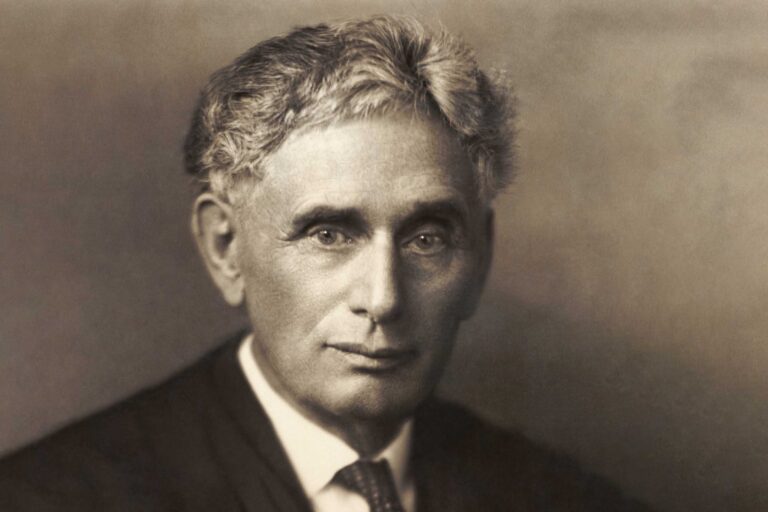
In the age of post-truth and polarized discourse, the meaning of “being Zionist” has been reduced in the eyes of many American Jews to blind support for Israeli government policy.
Thus, over the years, mainstream Jewish organizations have also preferred to give up emphasizing Zionism, in order to reduce tensions within the community and prevent younger Jews who are less connected to Israel from leaving the community altogether.
Avraham Infeld, the first director of the Birthright “Taglit” organization and one of the oldest activists among Diaspora Jewry, reiterates in his lectures to Jewish Agency shlichim that “Israel has changed from the most unifying concept of the Jewish community to the most divisive.”
“Love of Israel” instead of Zionism
Instead of confronting this reality head-on, many organizations have sought to deal with it indirectly. A sensible decision, it seems, given the drop in the number of synagogue members and donors to the Jewish Federations among young people, who feel much less connected to Israel than their grandparents’ generation felt.
According to a survey published in May 2021, about 52% of Jews over the age of 65 indicate that caring for Israel is an important part of their Jewish identity, compared to only 35% among 18-29 year olds. In the absence of a common center and within a polarized public discourse, it makes sense to try to find a common denominator, rather than prioritize Zionism.
Thus, education for a Zionist position was replaced by education about the “love of Israel,” a sometimes flattering and sometimes superficial concept. Americans went on educational tours and climbed Masada. They visited kibbutzim and the Western Wall. These days, however, the connection has shrunk to praise for Israeli technological innovations like the Waze GPS app and celebrities like Gal Gadot.
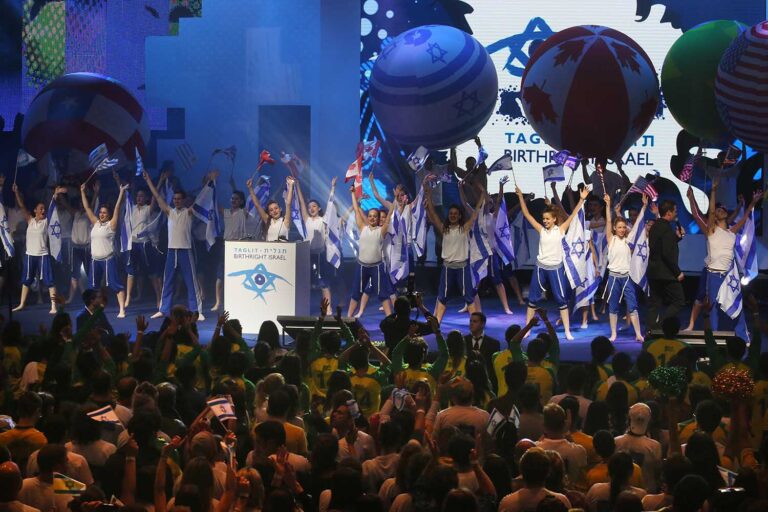
But the rosy image of Israel cannot coincide with the complex and violent reality of the Middle East. Many young Jews began to “wake up” and understand that the pro-Israel education they received was based on a superficial and partial truth, while skipping complex questions, namely, the Israeli-Palestinian conflict. Zionist education emphasizes the question of how to fulfill ideals in reality. As such, it necessarily includes the gap between vision and reality. Pro-Israel education, on the other hand, tends to deal exclusively with the finished product that is “Israel,” and aggressively market it to their “customers,” the American youth.
This crisis has spawned a number of activist movements. Despite being small in numbers, they have had a significant impact on the mood of the American Jewish left. These movements began to organize Jewish youth and young people in order to create an alternative political discourse in relation to the Israeli-Palestinian conflict and Israel in general. They invested most of their effort into moving the concept of “occupation” off of the margins and into the center of public discourse in American Jewish society.
Working Around the Conflict
Their goal was to mobilize the Jewish community to fight the occupation and influence the foreign policies of the American government.
Their methods of action: demonstrating in front of AIPAC (American Israel Public Affairs Committee) conferences, introducing alternative educational content to Jewish summer camps, and organizing petitions.
When I was a shaliach to Habonim Dror, an American Zionist youth movement, I felt the impact of these movements. My commitment to peace was measured solely by the number of times I incorporated the word “occupation” into the conversation.
I have a lot of criticism of these processes, but it is clear to me where they come from. It is a fact that the status of the territories is controversial, both among the citizens of Israel and even among the Jewish citizens of Israel. It is a fact that Israel maintains military control over a population that opposes it. And it is a fact that the State of Israel has not decided to annex Judea and Samaria (the West Bank). These facts are undisputed, neither on the right nor on the left, even if there is a debate about the causes of the situation and the solutions it demands. Therefore, it is very legitimate, and even necessary, to have an open discourse on Israel’s attitude toward the territories, even when this discourse is difficult and uncomfortable.
Unfortunately, just as many of the major institutions of American Jewry have decided to circumvent Zionism, so too have Israeli institutions with regard to the issue of conflict.
From Failure to Extremism
The latest round of violence between Israel and Hamas has exacerbated the ideological war of the Jewish-American left. The term “occupation” has been abandoned in favor of much more serious and charged concepts. During the recent operation, more and more young Jews, reinforced by celebrities from around the world and pro-Palestinian activists, referred to Israel’s military operation in Gaza with phrases like “ethnic cleansing,” “the reality of apartheid,” and even “genocide.” These are some of the most serious charges out there, and they are being used to describe one of the most complex and tragic conflicts of the last century.
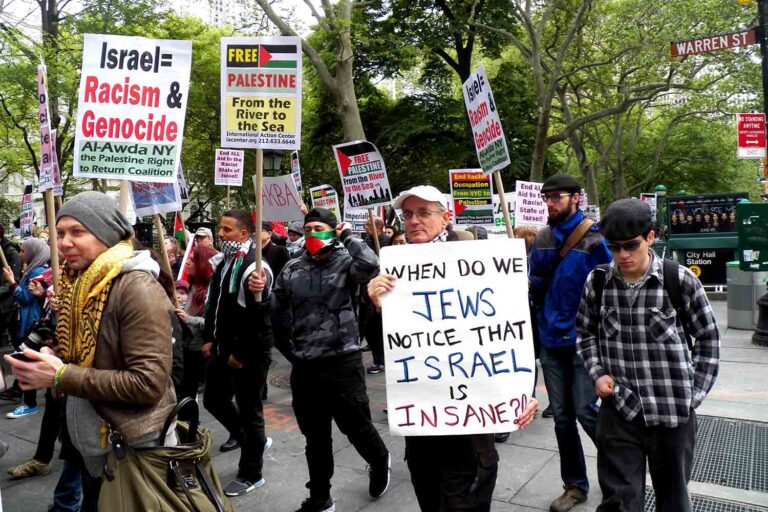
In addition, the use of the term “ongoing Nakba,” which is associated with the Palestinian protest movement around the world, has increased. It is one thing to recognize the existence of a different narrative and Palestinian experience in relation to 1948 (Israel’s War of Independence). It is a completely different thing to claim that the “Nakba” or “catastrophe” never ended, and to align with the perception of the Palestinian as the “eternal refugee” until they return to live in Haifa or Jaffa. That is to say, until Israel ceases to exist.
There are several reasons for the extremism in the discourse around Israel. The first reason is that radical left-wing organizations are failing to meet their goals. A large proportion of these organizations have suffered severe blows in recent years. The growth of organizations that broke into the American Jewish consciousness in a storm has halted. Congress and state legislatures around the country have passed laws against the BDS movement (boycott, divestment, and sanction movement on Israel) and in general, it seems that the boycott movement is not having its desired effect anyways. And lastly, the Israeli economy has continued to grow and expand international cooperation, with the Abraham Accords being further evidence of this trend.
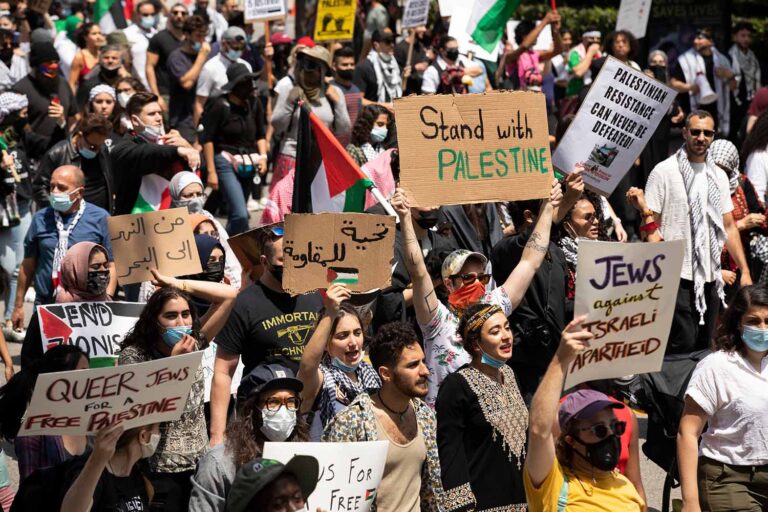
Added to this is the disappointment of the loss of Bernie Sanders in the 2020 Democratic primary (even though that was an expected outcome). While Sanders was perceived by many on the American Jewish left and in general as the one who would bring their positions to the White House, Joe Biden was perceived as a refined version of then president Donald Trump. His becoming the “left” candidate for the presidency, and subsequently his victory, posed a crisis for those activists and left them without achievable goals or figures to look up to in national politics. Under these circumstances, the ground was ripe for the influence of Palestinian protest movements that offered a “radical” view of the reality of the Israeli-Palestinian conflict.
Struggle Reduction: It’s All About Persecuted Minorities
These trends are joined by rising and popular forces in the Democratic Party, who are ready to attack Israel and challenge the United States’ established policy of unconditional support for its most important ally in the Middle East. Congresswomen Rashida Talib and Alexandria Ocasio-Cortez, some of Israel’s most prominent critics of the US Congress, explicitly claim that Israel is an apartheid regime and not a democracy. They also demanded that the US freeze military aid to Israel.
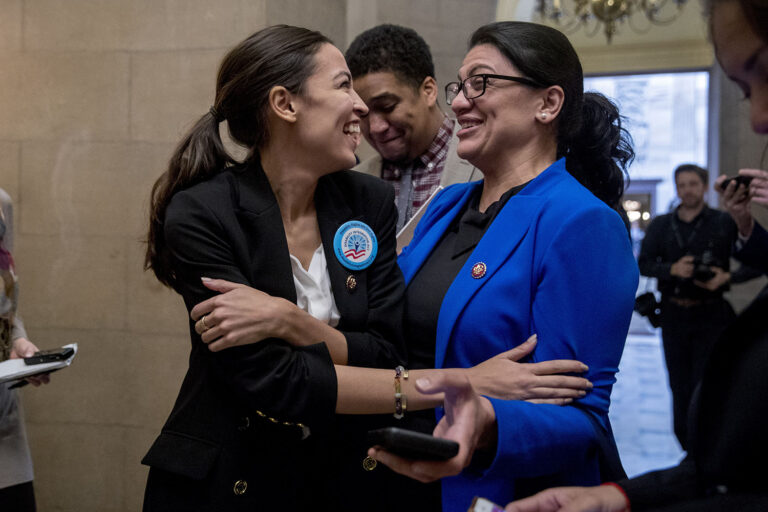
They are not doing this to rake in the votes of a small number of Jews on the radical left, but are targeting other voter demographics that support their policies. Among Ocasio-Cortez’s constituency, the 14th district of New York in the Bronx, only 4.5% of voters are Jews, compared with 11% Blacks and 50% Latinos. These are the voters that the congresswoman needs as her base to be elected every two years. But what do Blacks and Latinos in New York have to do with a resolute anti-Israel policy?
Despite the popularity of the #FreePalestine hashtag on social media platforms, the Palestinian struggle has not been at the center of the social agenda that has rocked America for the past year. Last summer, the largest popular social protests in its history took place in the United States, fueled by incidents such as the murder of George Floyd by a white police officer. According to various studies, between 6% and 10% of the general American public participated in the demonstrations, which changed the way that progressive movements in the country operate and the influence they hold.
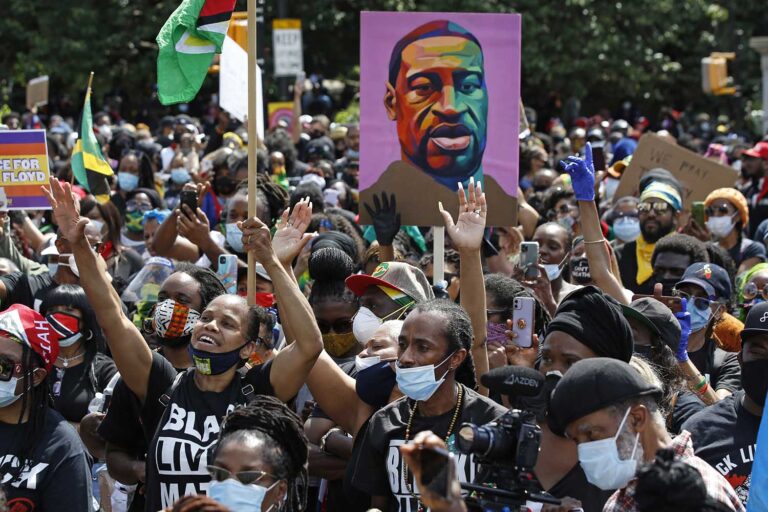
The important struggle of the Black Lives Matters movement broke out in opposition to an unbearable racist reality, and swept away with it all the struggles of the progressive left. From now on, all struggles are related and all minorities are persecuted. More than ever, every issue of justice and morality has become a black and white matter, of a persecuted minority in the face of an oppressive majority. Every minority is right and every majority is dangerous.
Every minority, that is, except the Jewish minority. The “original sin” of the Jews in the eyes of the American left is that their struggle as a minority, unlike the other struggles, was indeed dizzyingly successful. The Zionist movement is basically a movement for Jewish liberation. Most liberation movements today find successes primarily on social media, and do not always necessarily manage to accumulate significant power that changes the rules of the game. Zionism, on the other hand, succeeded. The oppressed minority established a state for itself and thereby lost its status as a minority. It thus automatically also lost its status as “just.”
Where has peace gone?
Jewish left-wing radical organizations have in the past aspired to lead a unique Jewish perspective in relation to Israel within Jewish institutions. Their failure to create power and influence pushed them into expanding collaborations with Palestinian protest movements. This can be seen in the prominent participation of Jews in demonstrations led exclusively by Palestinians last summer: on social media, and specifically with the difficulty of many Jews expressing basic solidarity with Israeli civilians under rocket fire.
Donald Trump’s four years of “Twitter rule” also played a role in these trends. Trump radicalized and pushed the boundaries of legitimate discourse, and thus had a tremendous impact on world politics. Ideas and norms once considered extreme a few years ago became normative through his tweets.
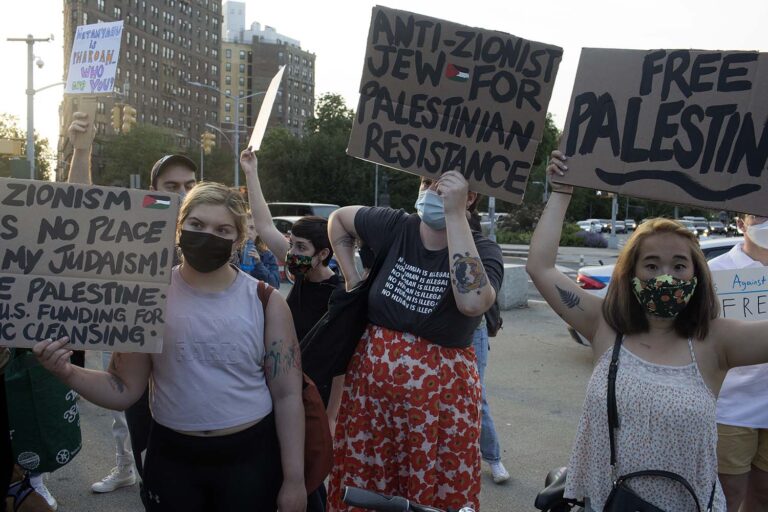
As a result, many leaders on the left concluded that the only way to fight fire is with fire. As Trump did, so should we. Therefore, do not say “terrorism,” say “resistance.” Rather than “conflict”, say “ethnic cleansing.” Don’t say “security fence,” say “apartheid wall.” Instead of “Israeli attacks on Gaza,” say, “genocide.”
But, and this is an important point, in order for these concepts to work among the Jewish left in the United States, another concept had to disappear. A concept that parts of the American left have already given up in relation to the Israeli-Palestinian conflict: peace.
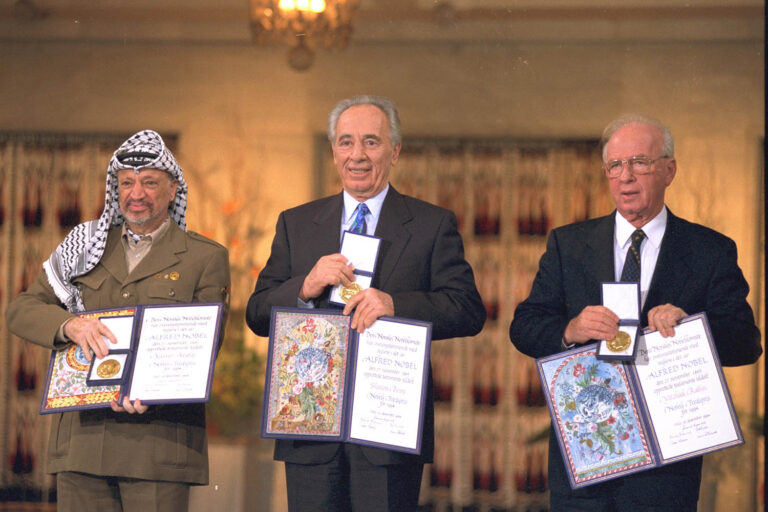
About a year and a half ago, Ocasio-Cortez withdrewher participation in a conference of the American “Peace Now” organization, after realizing that the conference commemorates the day of the assassination of the late prime minister Yitzhak Rabin. It did not matter that Rabin was a Nobel Peace Prize laureate who was assassinated trying to achieve a peaceful reality in the Middle East. This event was too much for Ocasio-Cortez and the radical left.
Organizations that have adopted the terminology of “ethnic cleansing” and “genocide” have clearly chosen to give up on peace as a political goal or a vision for the desired relationship between Israel and the Palestinians. When a complex conflict is understood only through a simplistic pattern of oppressors and oppressed, one cannot speak of “peace,” but rather of a “liberation struggle.”
The great danger, however, is indifference
The choice of the Jewish left in the United States to exaggerate the discourse may eventually come back to bite them. Instead of accumulating significant achievements and creating broad and cross-camp coalitions in favor of a peace process, the left may provoke a severe counter-reaction among the right, and lose its “natural partners” in the Zionist left in Israel. It may widen the gaps between Israeli Jews and American Jews, and contribute to the strengthening of the global wave of anti-Semitism. And, as we know, anti-Semites don’t usually care about the political positions of Jews.
Despite the gloomy analysis presented above, the current reality among American Jewry is also a great opportunity. To understand it, one must remember that Jewish leftist organizations are not Israel’s main problem among American Jewry. What is actually more worrisome is the indifference of most Jews in the United States to the complex situation which Israel finds itself in today.
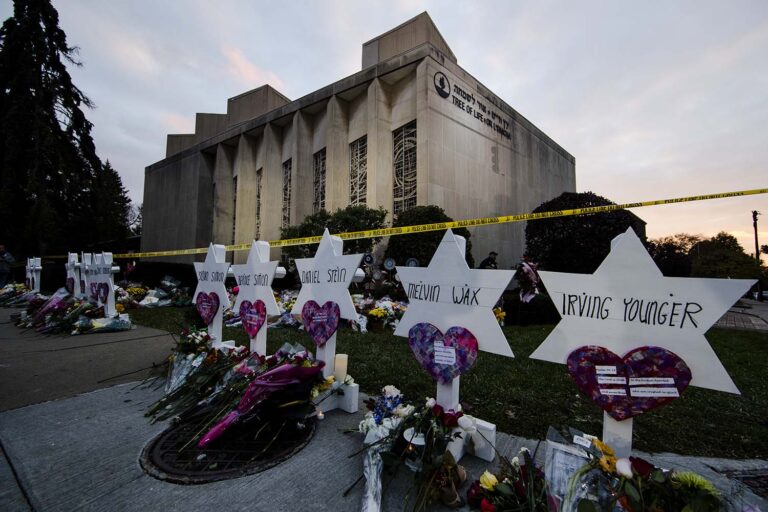
According to a study published about a year ago, Israel is at the bottom of the list of priorities for the Jewish-American voter. And while 90% of Jews in the United States identify themselves as “pro-Israel,” only half of those supporters of Israel consider Israeli policy a critical consideration.
Meanwhile, radical left-wing activists are at least expressing involvement, and an understanding that the existence of the State of Israel has a major impact on their lives. Their views stem from the desire to find a place in the lap of the progressive movement in the United States (which is gaining popularity on campuses and among popular figures in American culture), and this desire sometimes blinds them.
The rise of anti-Semitism makes it clear that there is indeed no ability to separate Jewish identity from Israel. There will be those who will try, but it is a futile attempt. Despite the pain and anger, young people who find themselves in radical leftist movements should not be condemned. The State of Israel, and the Israeli public, must reach out to them and remind them that despite everything, Israel will continue to be a home to every Jew, wherever they may reside.
Stop explaining and start correcting
Now is the time to grow new and inspiring movements that will appeal to the Jewish masses across the United States, who so far have remained indifferent to what is happening in Israel. Now is the time to bring more Jews to see their fate as related to the fate of the Jewish state.
For this to happen, American Jews must agree to be “exceptional” within the progressive movement and insist on maintaining their distinct identity as Jews and Zionists in an environment that expects them to deny it. More “information” will not help them with that. What is required is an educational, cultural, and political action, befitting the Zionist project as designed by Benjamin Ze’ev Herzl, as a beacon of values for the entire world.
To support this move, Israeli Jews must stop marketing Israel’s “righteousness,” and begin to take practical action to make Israel more righteous – on the level of the Israeli-Palestinian conflict, and in other areas, too.
And yes, it will require remembering that all too forgotten word – peace. And remembering that there is still the possibility of a Zionist solution to the conflict, an imperfect yet achievable solution, in the form of two states. Because, as the late Yitzhak Rabin said, “the only radical solution is peace.”
Barak Sella is the director of the Intentional Communities program at Hakhel, a graduate student in the Ruderman Program for American Jewish Studies at the University of Haifa, a member of the Dror Israel movement, and a former emissary of the Habonim Dror Zionist youth movement in North America.






